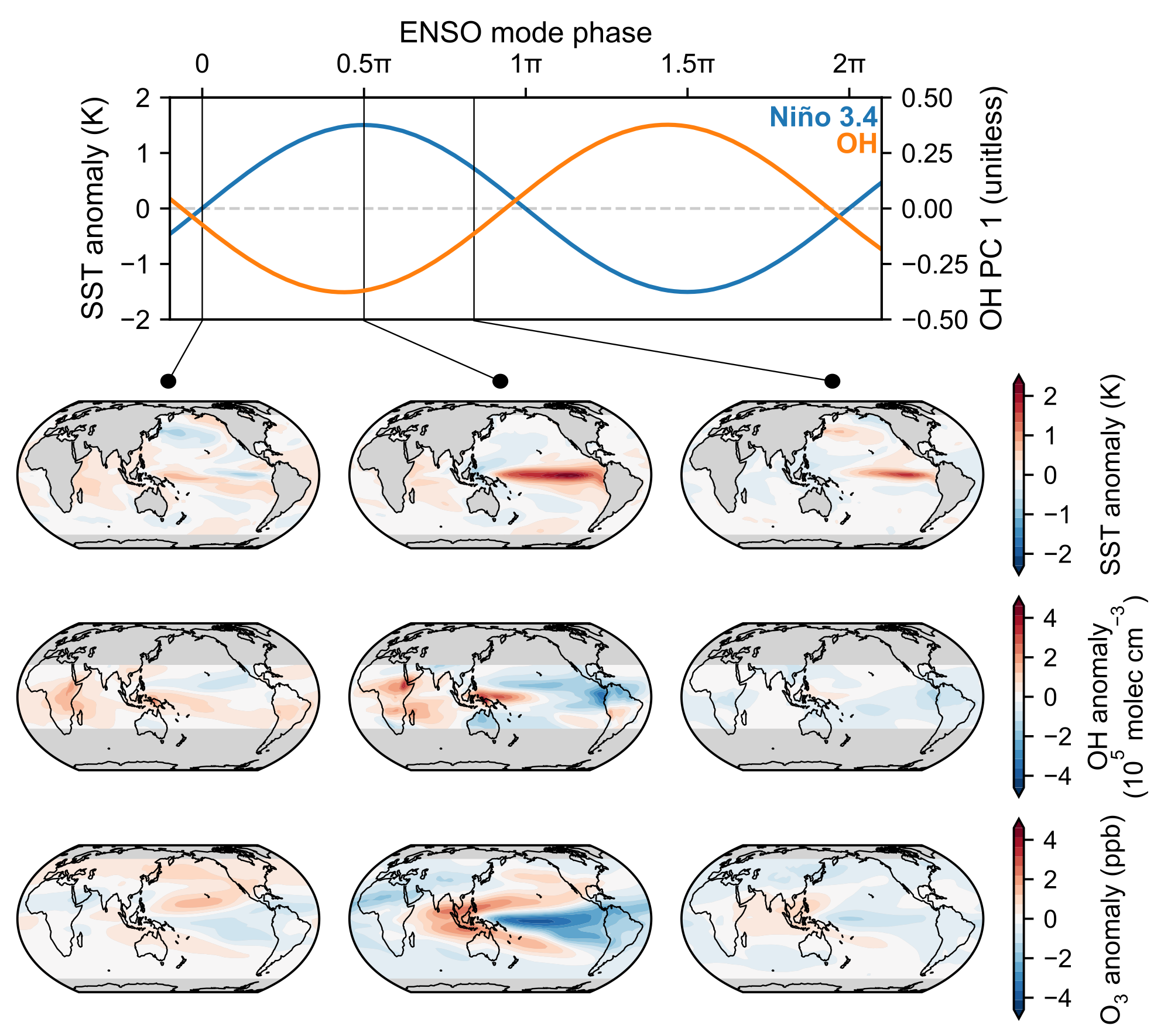Research
Methane (CH4) is a potent greenhouse gas with a global warming potential nearly 80 times that of CO2 on a 20-year timescale. Understanding the drivers of past methane variability is critical for predicting its future trajectory and informing climate mitigation strategies. My PhD research focuses on reconstructing methane concentrations and variability in pre-industrial atmospheres using surrogate models (emulators) of coupled chemistry-climate dynamics.
Chemistry-Climate Emulators

Chemistry–climate models (CCMs) capture complex interactions between dynamics, radiation, and atmospheric chemistry, but their computational cost limits how thoroughly they can be analyzed. We build data-driven linear inverse models (LIMs; see pub. [7]) that emulate these CCMs and reproduce their key modes of variability at very low cost. By comparing LIM simulations to the underlying CCM, we find that predictable chemistry–climate modes, such as ENSO-driven changes in oxidants like OH and ozone, are responsible for a large fraction of year-to-year chemical variability. These emulators can skillfully forecast chemical fields months to a year ahead and provide a fast, physically grounded way to test hypotheses about chemistry–climate coupling that would otherwise require thousands of hours of supercomputing time.
Past Projects
I received a bachelor's and master's degree in environmental engineering from Georgia Tech. My previous research focused on air pollution, in which I investigated local concentrations of hazardous air pollutants (see pubs. [2], [3]) and impacts of regional air pollution control regulations (see pubs. [4], [5], [6]).
